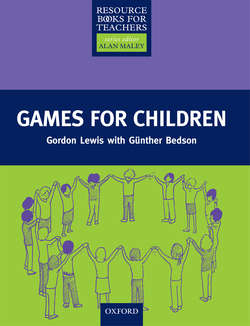Читать книгу Games for Children - Gordon Lewis - Страница 5
На сайте Литреса книга снята с продажи.
Foreword
ОглавлениеThe pedagogical value of games in language learning at all levels has been well documented. Apart from their motivational value as an enjoyable form of activity, they provide a context in which the language is embedded. This context is ‘authentic’ in the sense that the game creates its own world: for the duration of the game, it replaces external reality. Games also create the circumstances for meaningful repetition. Furthermore, the ‘same’ game can be played many times yet never produce identical outcomes. Needless to say, games also ensure that the players interact with each other, and this interaction is usually played out in language.
For younger learners games have even greater appeal. Children are curiously paradoxical. They can be both committed to co-operation and, at the same time, ercely competitive. They love the security of routine and the predictability of rules, yet they are often amazingly unpredictable and creative. They love to have fun, yet they dedicate themselves with deadly seriousness to the activities they engage in. It is not surprising therefore that games are so popular with children; games too involve both co-operation and competition, rules and unpredictability, enjoyment and serious commitment.
This new book of games for younger learners amply demonstrates these qualities. The authors have put together a rich and varied selection of games for children. Many of them have been devised by the authors and are therefore completely original. Some well-tried favourites have also been included, often with a new twist. All the games described here have been thoroughly tested with real learners. This collection is likely to prove to be the authoritative text on games for young learners for some years to come.
Alan Maley
